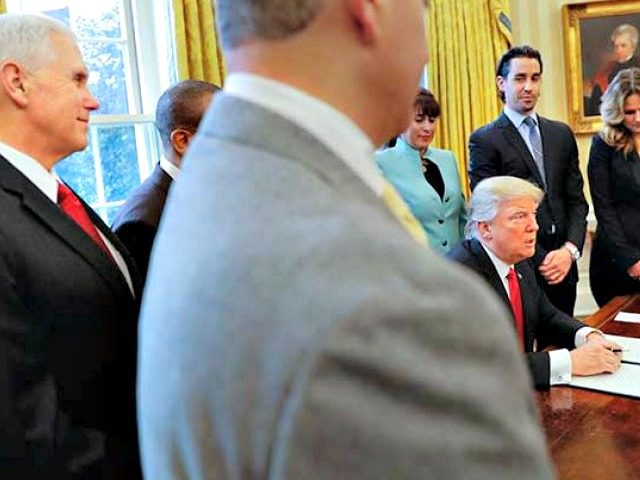President Trump, with a Republican Congress, plans to unravel the “administrative state.” The President and Congress have delayed, suspended, or revoked more than 90 federal regulations.
Republicans adopted the Congressional Review Act during the Clinton administration. Congressional review allows Congress to revoke regulations within 60 days of the rule’s proposal. Congress already eliminated three Obama regulations in the last month — removing restrictions on coal extraction, on oil and gas exploration, and eliminating a Social Security Administration provision that would limit disability insurance and Supplemental Security Income recipients’ right to purchase firearms.
Congress plans to rescind several more rules in the coming weeks.
Stephen K. Bannon, Trump’s chief strategist, referred to this plan as the “deconstruction of the administrative state.”
President Trump ordered a full regulatory freeze, directing agencies that regulations unecessary to remove them. Trump directed executive agencies to revoke two regulations for every new regulation proposed.
Curtis Copeland, a scholar on the regulatory state, said, “By any empirical measure, it is a level of activity that has never been seen. It is unprecedented.”
Executive agencies are removing regulations that impede the growth of the industries they regulate. Industry members complained about an Interior Department rule that altered the way companies pay royalties for oil, gas, and coal extracted from federal lands. The Interior Department responded five days later and said they would suspend the rule. “We agree you have raised serious questions,” the agency’s response letter said.
The Federal Communications Commission (FCC), under Republican leadership, will eliminate regulations not subject to congressional review. The FCC already voted to halt new regulations on data security for the telecom industry. Ajit Pai, as chairman of the FCC, plans to rescind the Net Neutrality order, which regulates the Internet as a public monopoly.
President Trump said in his address to Congress that this is “a historic effort to massively reduce job-crushing regulations.”

COMMENTS
Please let us know if you're having issues with commenting.